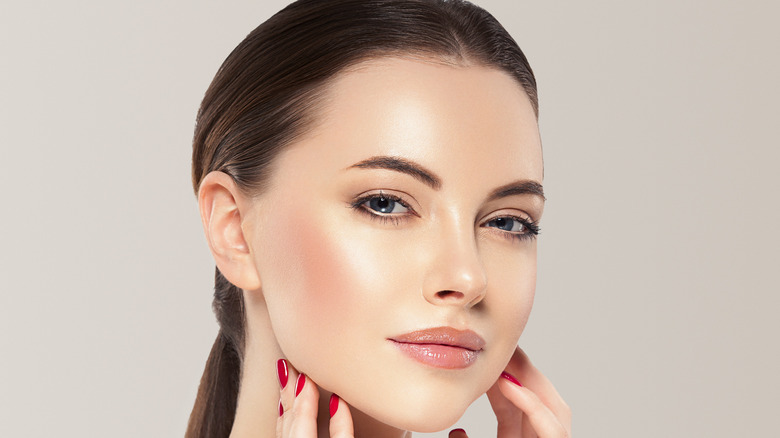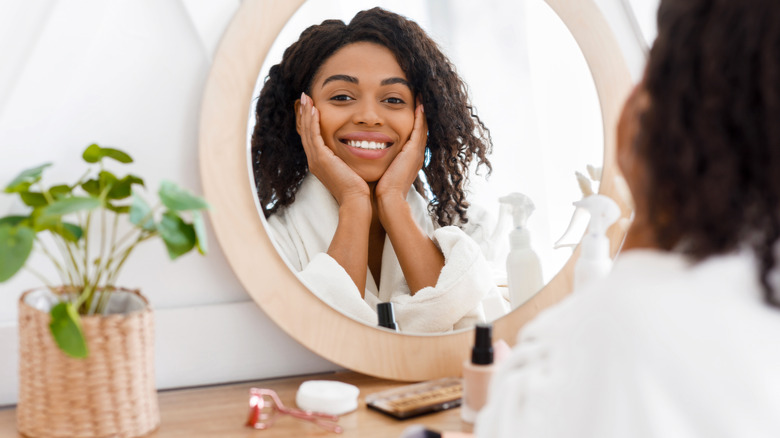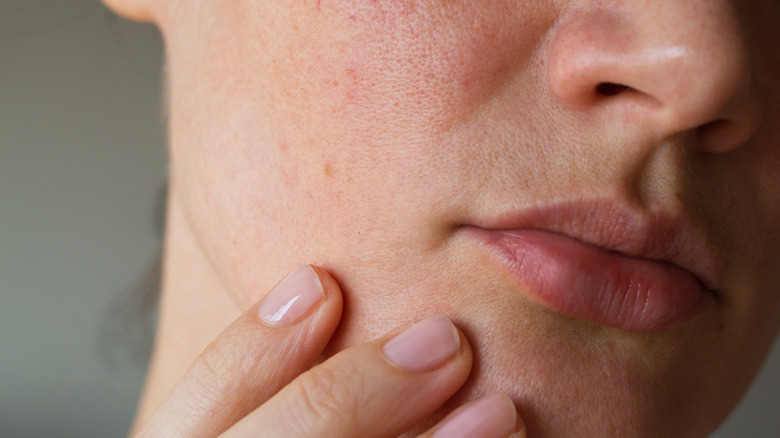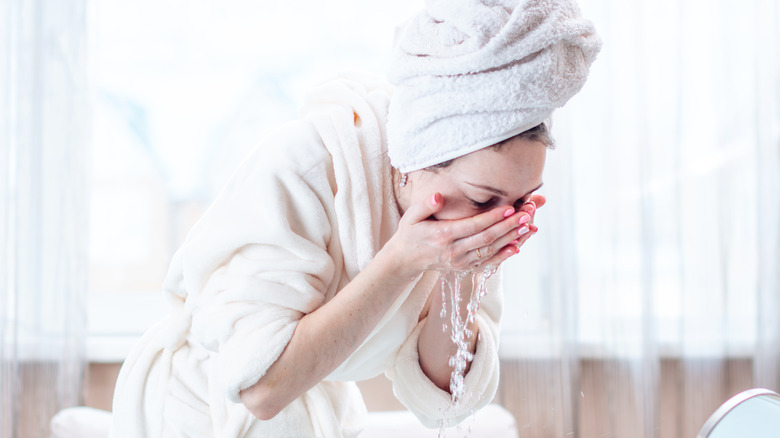Many cosmetics contain harmful chemicals that can clog your pores and speed up aging.
Parabens, for instance, are widely used in makeup products.
Most women use about 12 beauty products every day, as noted byHarvard Medical School.

These products are tested for safety, but their long-term impacts are still a bit unclear.
TheFDAtakes legal action only if a product is adulterated or misbranded.
Some women use cosmetics to cover acne, rosacea, or scars.

Others simply feel more confident when wearing lipstick, mascara, and other products.
Either way, there’s no need to go makeup-free if you don’t want to.
Use these tips to keep your skin healthy without giving up makeup.

Cosmetics that are labeled “natural,” however, are not necessarily safer.
Also, it should be noted that theFDAdoesn’t regulate the term “organic” for cosmetics.
Therefore, they may contain potentially harmful ingredients.

Ideally, opt for clean cosmetics.
Talc, for example, is commonly used in eye shadow and face powder.
This naturally occurring mineral may contain traces of asbestos, a known human carcinogen.
Plus, it’s not an essential ingredient, as pointed out by the Mayo Clinic.
Otherwise, you may end up with acne, dry skin, rashes, or blackheads.
Ideally, look for water or powder-based formulas.
If your skin is dry, choose an oil-based liquid foundation.
Use a moisturizing cream or face mask before applying foundation and powder, as it helps hydrate your skin.
Opt for hypoallergenic makeup products if you havesensitive skinand eyes.
These cosmetics tend to be gentler on the skin and have fewer ingredients, as explained byHealthline.
Some people are allergic to specific ingredients in makeup products.
Common symptoms of allergic reactions to makeup may include hives, rash, eye irritation, or flaking skin.
In severe cases, you may experience anaphylaxis, a life-threatening allergic reaction (via theFDA).
Hypoallergenic and allergy-tested cosmetics won’t necessarily prevent these issues.
However, they are less likely to cause allergic reactions than regular cosmetics.
As a general rule, clean your makeup brushes at least once a week.
Apply sunscreen before leaving home, even if it’s dark outside.
TheNational Institutes of Healthrecommends using sunscreen with a sun protection factor (SPF) of 30 or higher.
TheAmerican Academy of Dermatology Associationsuggests using cosmetics labeled as oil-free or non-comedogenic.
Use a gentle cleanser twice a day to unclog your pores and remove dead skin cells.
Essential oils, for instance, may have estrogen-like effects, as noted byHarvard Medical School.
Instead, use plain water and a gentle face wash with basic ingredients.